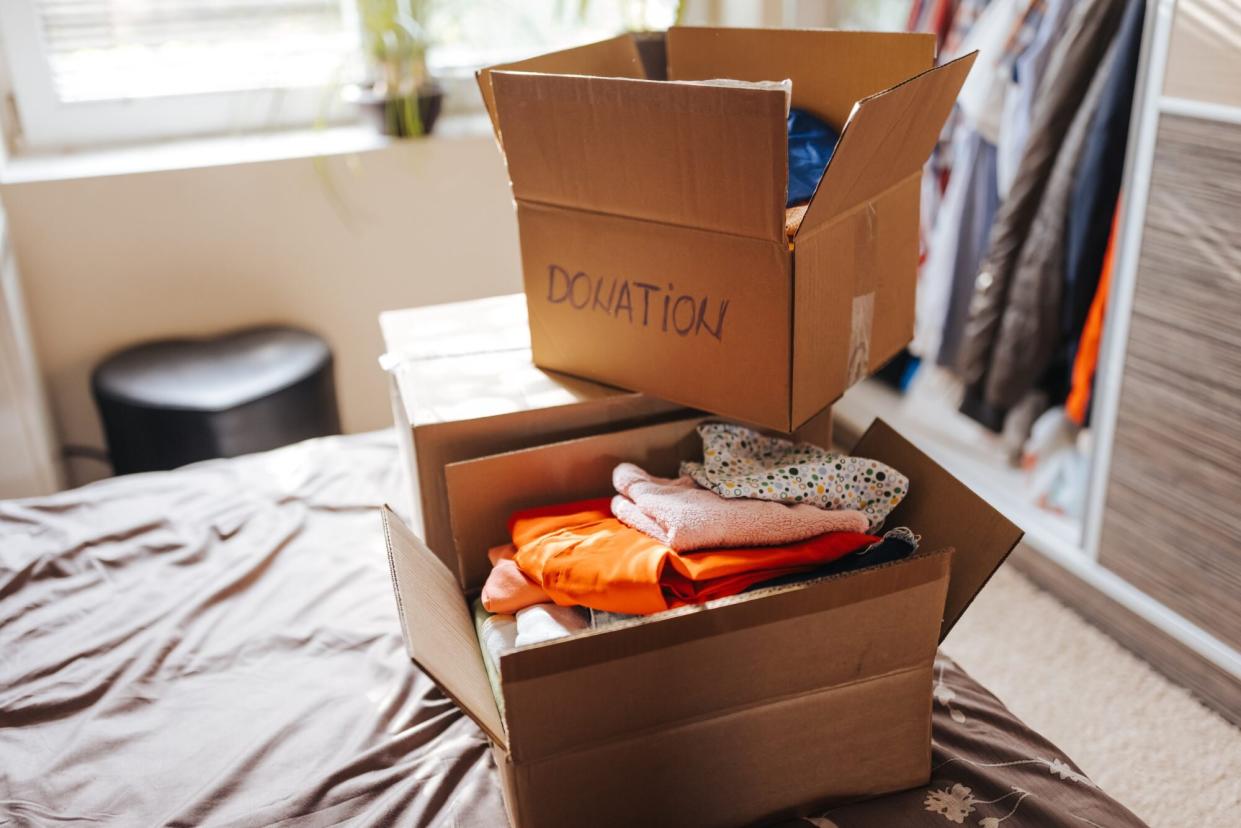What Is Swedish Death Cleaning?

Getty Images
Organizing stuff just might be the South's favorite pastime. Well, next to collecting stuff, that is. However, thanks to the example set by the decluttering magicians at The Home Edit and Marie Kondo urging us to ask whether each item in our linen closet sparks joy, getting rid of stuff can be pretty thrilling, too.
Cleaning out your laundry room, garage, or even desk can feel daunting, but there are real psychological benefits to it. Some research suggests that clutter in the home can raise stress levels and reduce productivity. As we and the folks we love get older, having a house full of stuff may also raise their risk for falls and create other health and safety hazards. Unfortunately, aging people may also have weaker ability to control clutter. That's part of the reason for the rise in a decluttering movement with the name of Swedish death cleaning.
What Is Swedish Death Cleaning?
Technically called dostadning, it derives its name from a mashup of the Swedish words for death and cleaning. The concept came from Swedish author Margareta Magnusson, who published the book The Gentle Art of Swedish Death Cleaning in 2017 and has been growing in popularity ever since. "Death cleaning is not about dusting or mopping up," Magnusson told The Chronicle. "It is about a permanent form of organization that makes your everyday life run more smoothly."
So what does it entail? "It's a distinctive name towards a simplification process revolving around the idea of downsizing your home contents as you you get older in life-specifically geared toward simplifying before you pass, hoping to relieve family members from having to tackle after your passing," explains Jessica White, owner of JSW Home Concierge Services, which helps seniors in the Atlanta area downsize their homes, which frequently requires getting rid of lots of stuff.
In her book, Magnusson argues that the task isn't morbid at all, but instead is a good way of taking care of yourself now and your family later. "One day when you're not around anymore, your family would have to take care of all that stuff, and I don't think that's fair," she says in a YouTube video. "[W]hen your time does come, if you have done your death cleaning, your loved ones will have a few nice things from you and they can spend pleasant evenings in the park, instead of spending them sorting through your cupboards and closets," she wrote in 2020.
Plus, decluttering is usually a good idea. "Generally people have too many things in their homes," says Magnusson in the video. "I think it's a good thing to get rid of things you don't need." Plus, there are real benefits to keeping clutter under control while you're still living. "I want to have it nice around me, keep some order," Magnusson says.
You don't have to get rid of everything, of course. Magnusson herself has a sentimental streak and holds on to some memory-filled items like old letters and photographs. "In this box, I keep small things that are very personal and just for me. A dried flower, a funny stone, a ticket, a beautiful little shell, a personal letter... Things that are valuable only to me, as they remind me of special days and happenings," she wrote in 2020. She's not that sentimental, though, dubbing it a "throw-away box," which her children know they can simply throw away, without even looking through its contents, when the time comes.
According to Magnusson, the easiest way to avoid clutter is to not collect the stuff in the first place. "Don't collect things you don't want," she says on YouTube. After that it's a question of culling what you do have, which can feel daunting. "Simplifying life contents is typically an overwhelming task for many," says White, the decluttering pro. "But those who feel paralyzed by the process are best hiring an organizer who can strategically assist those individuals looking to declutter." If you want to tackle death cleaning, remember that you don't need to tackle your entire house in one day or even one week. "Thirty minutes of death cleaning a day is a good starter. Work up to an hour a day. Reward yourself after every accomplishment: A nice coffee, a piece of cake, a warm shower, or a bath," Magnusson writes. Alternatively, you may find that working your way through just one room a month can make a big difference.

